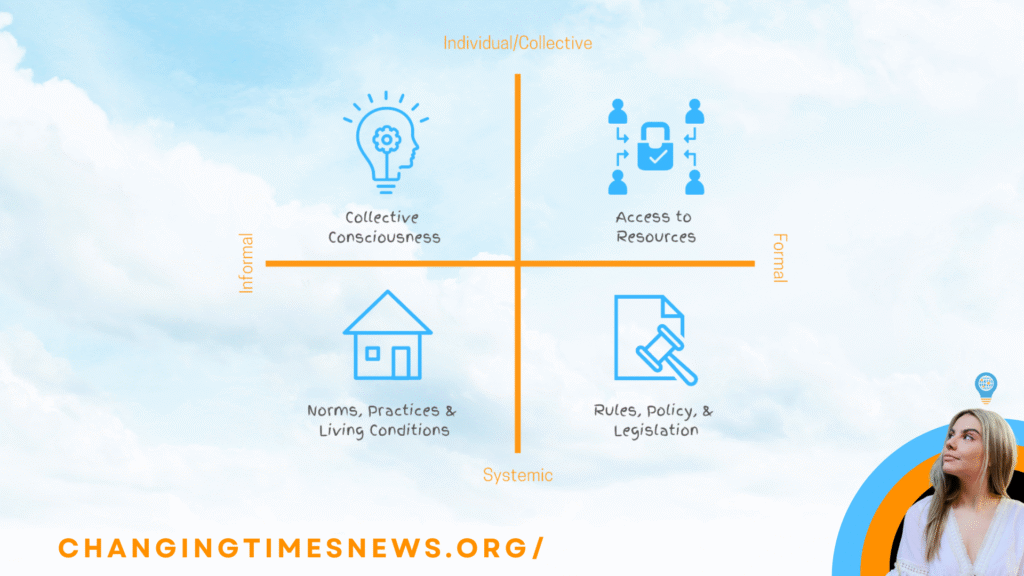In a time when political identity often feels like a full-time job and public life is framed as an either/or contest, Scott Grace is trying something rarer: he’s asking people to laugh, to cry, and then to take those feelings seriously enough to sit with one another. A comedian, songwriter, coach and author, Grace combines whimsy and spiritual practice to nudge audiences away from the reflexes of outrage and into a humanness that crosses partisan lines.
The art of lightness and depth
Grace’s project — often called Beyond Red and Blue — is deliberately low on party rhetoric and high on craft. He mixes short rhymes, songs and comedic sketches with coaching techniques and what he describes as “poetic magic,” aiming to open a space where someone who voted one way can meet, on human terms, someone who voted the other.
What makes Grace’s approach distinctive is its insistence that levity and depth are not opposites. As he tells his listeners in the episode, “the desire to bring more light to the planet… can take the form of humor” — but that light, he adds, must also allow the darkness to surface. In the interview he explains that levity “helps people get in touch with their tears and serious stuff because light, real light is bringing up the darkness.”
Writing, performing, and coaching in divided times
Grace’s career tiptoes across disciplines. He’s the author of How to Evolve During the Trump Experience: Whether Humanity Joins You or Not, a book that the marketplace lists as a practical, spiritually informed response to polarized times. He also hosts talks and workshops, composes what he calls “song portraits” for individuals, and posts video teasers that stitch together his theatrical poise with direct messages about staying human in divisive eras.
The pain beneath opinions
A through-line in the episode is Grace’s conviction that political fury usually sits on top of deeper — and often shared — human pains. “Most opinions come from pain,” he says, urging listeners to look underneath their hot takes. In a poem he reads on the show — part Dr. Seuss cadence, part adult alarm — he invites people to remove the metaphorical sunglasses that let them see only “black and white” and instead notice “what we all have in common are humanity.”
Reclaiming grief and ritual
Grace also locates his practice in everyday ritual and grief. He argues that modern publics lack shared structures for mourning and that reclaiming those practices — crying, ceremony, communal dance — replenishes connection. “If we lose touch with our tears, we lose touch with connection and with humanity,” he tells the show, describing crying as both personal medicine and social service. The episode closes with a song, underscoring how performance can be a vehicle for both consolation and moral invitation.
Limits and risks of humour as healing
Critics might ask whether humour can scale as a remedy for structural political problems — and Grace does not claim otherwise. He positions his work as cultural and emotional repair rather than a substitute for policy change. Recent interviews and podcast appearances reinforce that the goal is not to erase difference but to humanize it, to reduce the “outrage reflex” that narrows public imagination.
One performance at a time
For listeners unsure whether humour is the right tool for heavy topics, Grace offers a short test: humour that opens people up wins; humour that punches down loses. His material aims for the former by pairing playful rhyme with invitations to feel, grieve, and get back to the work of repair. It’s a modest, iterative project — one show, one poem, one song at a time — that treats civic life like an ongoing rehearsal rather than a final verdict.
Courage in contested rooms
If there’s a risk, it’s comfort zones. The episode reveals Grace’s own ambivalence about taking his work outside of friendly rooms: he admits he’s often tempted to preach to the choir and is still learning how to bring the message into settings where people will genuinely disagree. That tension, though, is exactly the point: his practice is as much about the artist’s courage to step into contested rooms as it is about helping audiences find their way back to one another.


